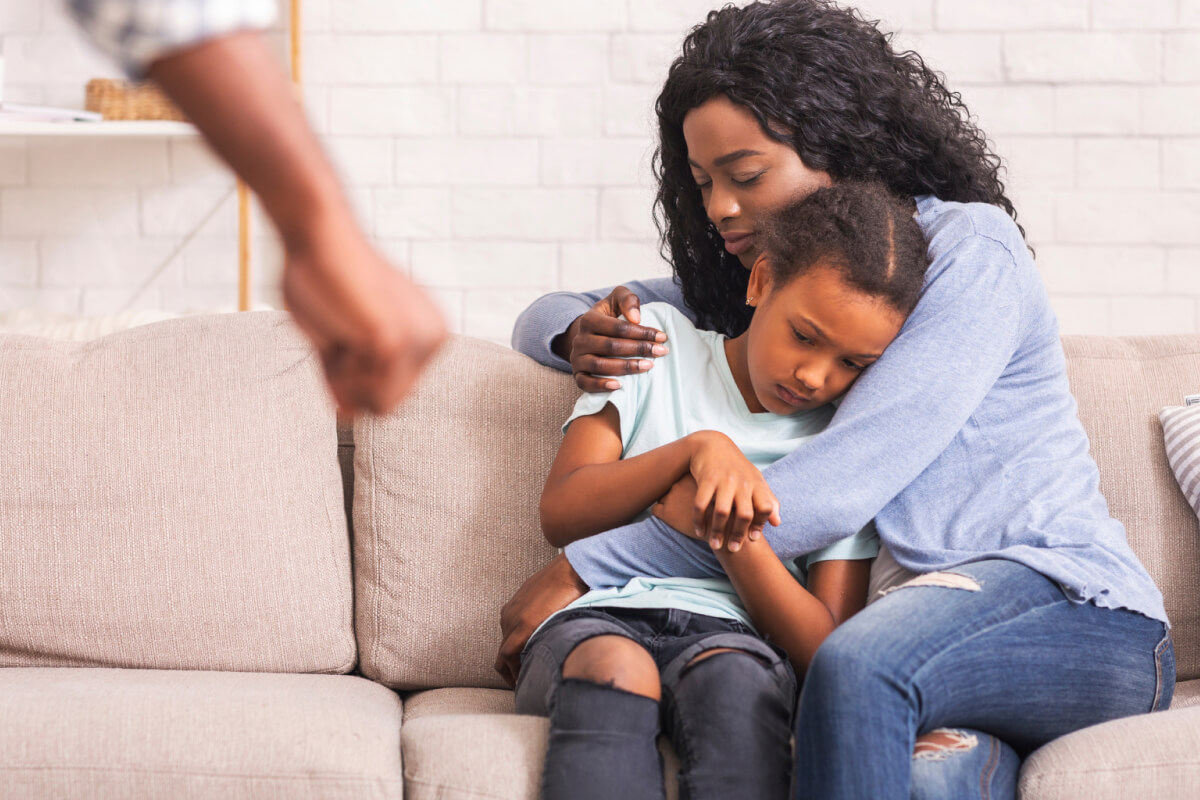How Does Domestic Violence Affect My Child Custody Case?

When domestic violence occurs in a family, one of the top priorities of the court is ensuring that any children involved have a safe and secure environment. This concern can affect custody arrangements and visitation rights, particularly if the court establishes protective measures for the victim(s).
As with many family-law-related issues, this can be a difficult thing to navigate. This article will break down how domestic violence affects custody and visitation for the perpetrator and the victim(s), how it affects the best interests test, and what those things could mean for your family in the long term.
The impact of domestic violence on child custody
One of the goals of child custody arrangements in New Jersey is to preserve a child’s relationship with both parents. When all other factors are equal, the courts prefer to see joint custody arrangements and equitable parenting time.
However, if a co-parent has been accused or convicted of domestic violence, safety for the victim(s) is paramount.
Above all else, the courts consider what is in a child’s best interests. The degree to which custody is influenced by the domestic violence charges or convictions hinges on the following:
- Whether the children were victims of violence
- Presence of restraining orders
- Severity and frequency of violence
- Last occurrence of violence
- Offender’s criminal record
Every situation is unique. Whether you’ve experienced or been accused of domestic violence, having an experienced family attorney is crucial for understanding your options to protect your relationship with your children.
Restraining orders and child custody in New Jersey
Restraining orders, also known as protective orders, play an important role in protecting individuals from harassment, stalking, assault, and other forms of abuse. However, restraining orders can also significantly impact child custody arrangements in both the short and long term.
There are several different types of restraining orders:
- Temporary Restraining Orders (TROs) that provide immediate protection for about ten days until a court hearing.
- Final Restraining Orders (FROs) that are long-term or permanent orders issued after a hearing.
If you already have a custody arrangement in place, a TRO can override it and potentially suspend contact or alter parenting time until an FRO hearing is held. If there is no existing custody arrangement, the TRO may influence the terms in an initial custody order.
If an FRO is issued, the terms of the TRO may be made permanent. This may further restrict the defendant’s custody and visitation rights, as well as impact the final divorce decree (if divorce is part of the situation).
It may also require extra measures like:
- Supervised parenting time
- Mandated counseling
- Mental health evaluations
Keep in mind that while restraining orders can change custody arrangements, they don’t affect child support obligations unless the changes become permanent.
How domestic violence may affect the best interests test
When New Jersey courts have to weigh in on child custody matters, they rely on something referred to as the “best interests test,” sometimes referred to as the best interests standard.
This “test” is a process of assessing what custody arrangement will most benefit the child physically and emotionally. This evaluation assesses factors like:
- Physical health
- Emotional health
- Appropriate decision-making of parents
- Logistics
Judges may consider these factors over a period of time—even months—but they may also appoint a custody evaluator to gather more information if necessary. Based on these recommendations and available evidence, the court will determine a custody arrangement aligned with the best interests test.
The best interests test and domestic violence cases
The best interests test strongly intersects with domestic violence, which is demonstrably linked to negative psychological outcomes for children. As such, it is a significant factor in the court’s deliberations.
Generally, the court will consider the risk to the child and weigh it against the harm done by separation from family members and environmental changes. If there are allegations of domestic violence, Child Protection and Permanency may speak with your child and make recommendations to the court.
The best interests test itself is very flexible and does not specify precisely how custody ought to be awarded in certain cases, so applying it is largely up to the court’s discretion. However, if there’s a risk of physical or emotional harm from a violent parent, this will likely outweigh the other factors noted in the test.
Parents can regain custody and parenting time
Although it can be an uphill battle, it’s possible for a parent accused of abuse to eventually gain custody and parenting time. Often, the court will require the alleged perpetrator to attend anger management classes or therapy to reduce the likelihood of future violence.
Once the risk is mitigated, the parent can request a reevaluation. If the parent follows the recommendations of the court and maintains a safe and healthy environment, the court may increase parenting time and visitation.
Consult with an experienced child custody attorney
If you are dealing with domestic violence in your home, experienced counsel can help you understand the options available to you and your family and navigate your way through the legal system.
At Dughi, Hewit & Domalewski, our trained family court mediators can help you achieve a fair, balanced custody agreement that prioritizes the best interests of your children. Contact us today for a consultation.









